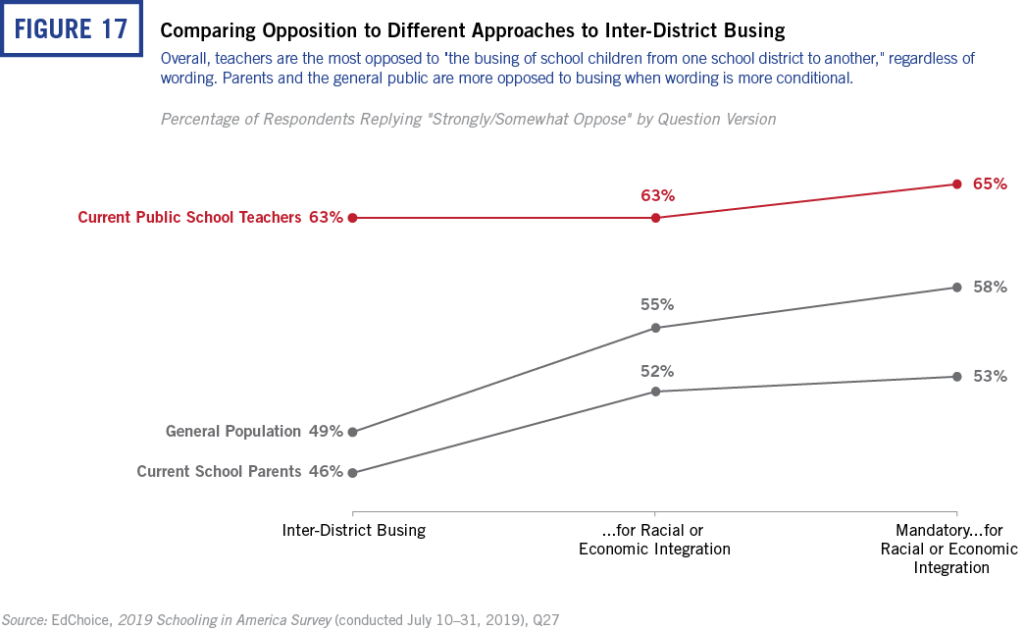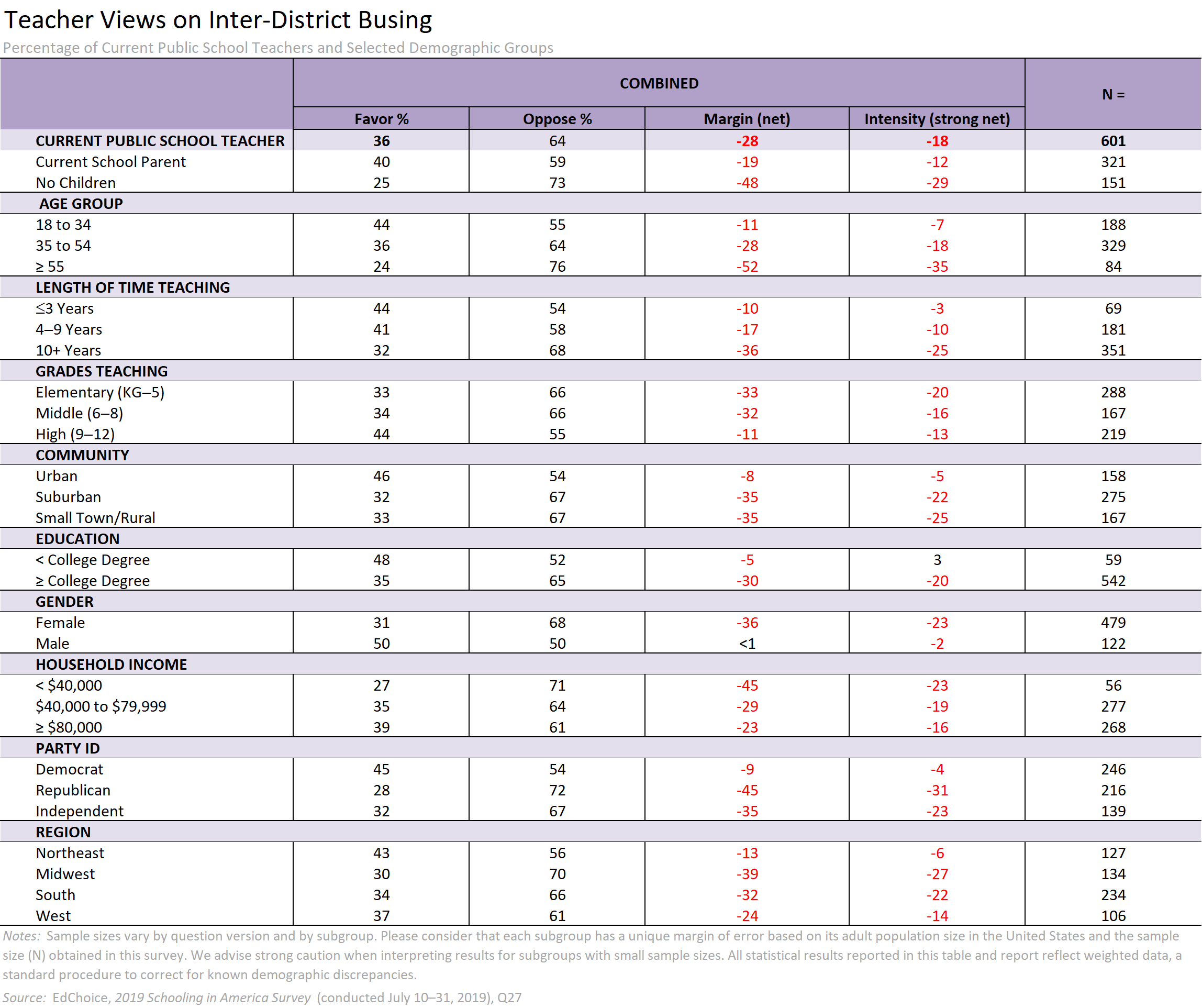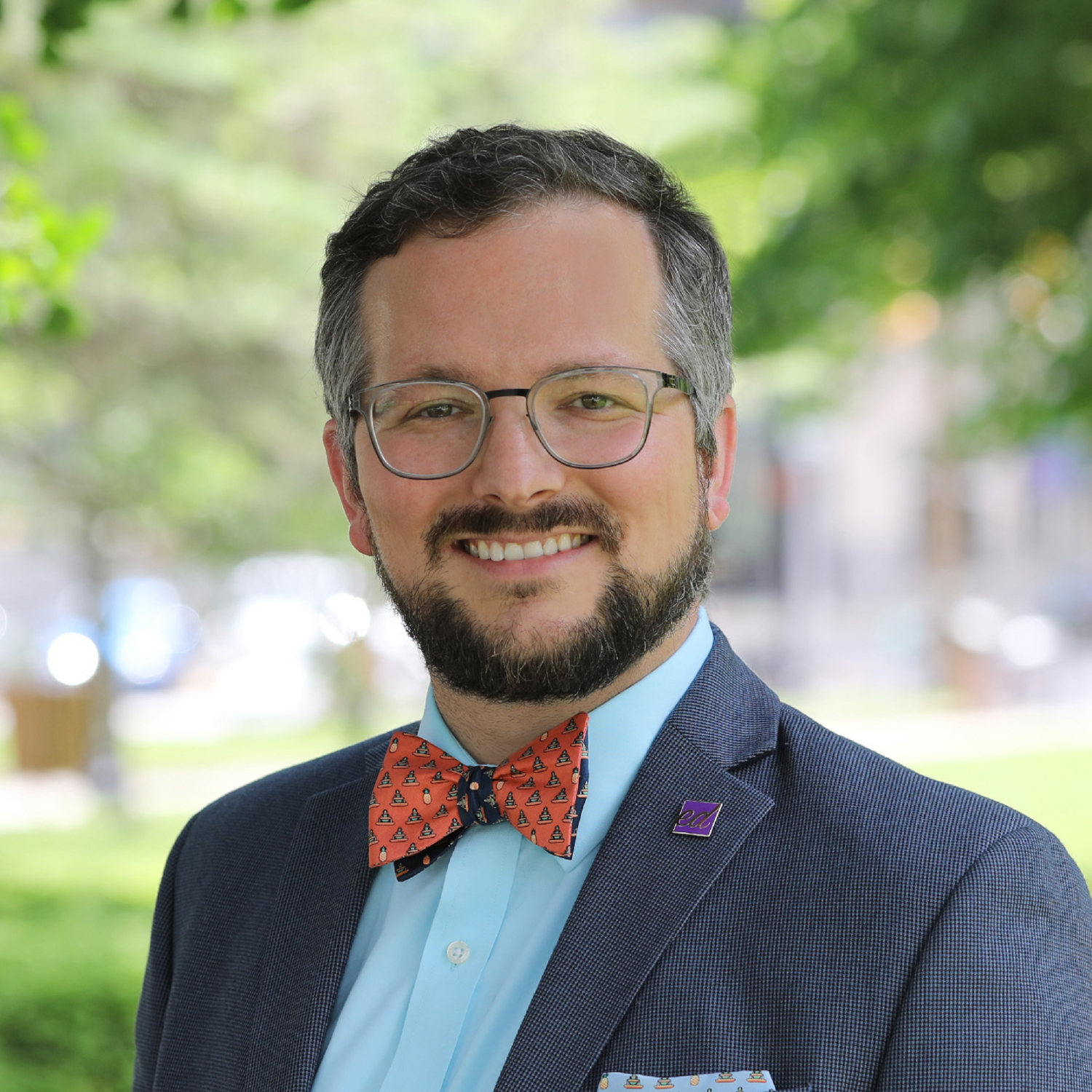Not All Teachers Oppose Inter-District Busing
In his recent Forbes column, my colleague Mike McShane highlighted new polling data that reveals public school teachers’ negative sentiment around inter-district busing, especially for the purposes of racial and economic integration:
To be totally honest, this result surprised me. I would have guessed, perhaps prejudicially, that parents would be the most opposed and teachers would be the most supportive. I got it exactly backwards.
So what does this mean for the potential for busing programs to combat segregation? It doesn’t look good. It’s hard to see these programs getting enacted, or succeeding if they are enacted, without the support of educators. This is not a topic that teachers don’t understand. They just don’t like it. It is hard to see a path forward.
Though I second that emotion, we know from the 2019 Schooling in America Survey that not all teachers oppose the idea of inter-district busing. At least a third of public school teachers seem open to the idea.

In this post, I zero in on the demographic subgroups of public school teachers that actually support busing students across district lines to attend a different public school.
A quick caveat: Although I initially wanted to show a full demographics table with grouped responses for each split-sample wording option like I did for Appendix 10 of our report, there are way too many potential sampling errors with the really small sample sizes resulting from a portion of a third of 601 teachers. So below is a demographic table of the composite answers (that is the combination of responses for all three wording options), which has sample sizes large enough for me to feel confident in the findings.

- Although urban and Northeasterner public school teachers were more positive on inter-district busing than their demographic counterparts, they still had negative margins. That means there was a higher percentage with negative responses (oppose) than positive responses (favor).
- However, male school teachers were overall positive when it comes to inter-district busing, although only very slightly. Male teachers were evenly split on inter-district busing but were by far the most positive subgroup.
- Younger teachers (in age and experience) are also more positive than older teachers, which is in line with the generational differences we found in the general population.
- Teachers who are parents were more positive than teachers without children.
For advocates of inter-district busing, there are signs of life among younger educators, especially as they become parents themselves. But more research is needed to determine what motivates them and how and why they see these policies working in practice.
Have any questions that could maybe be answered in other deeper dive analyses using our survey results? If so, please contact research@edchoice.org.




